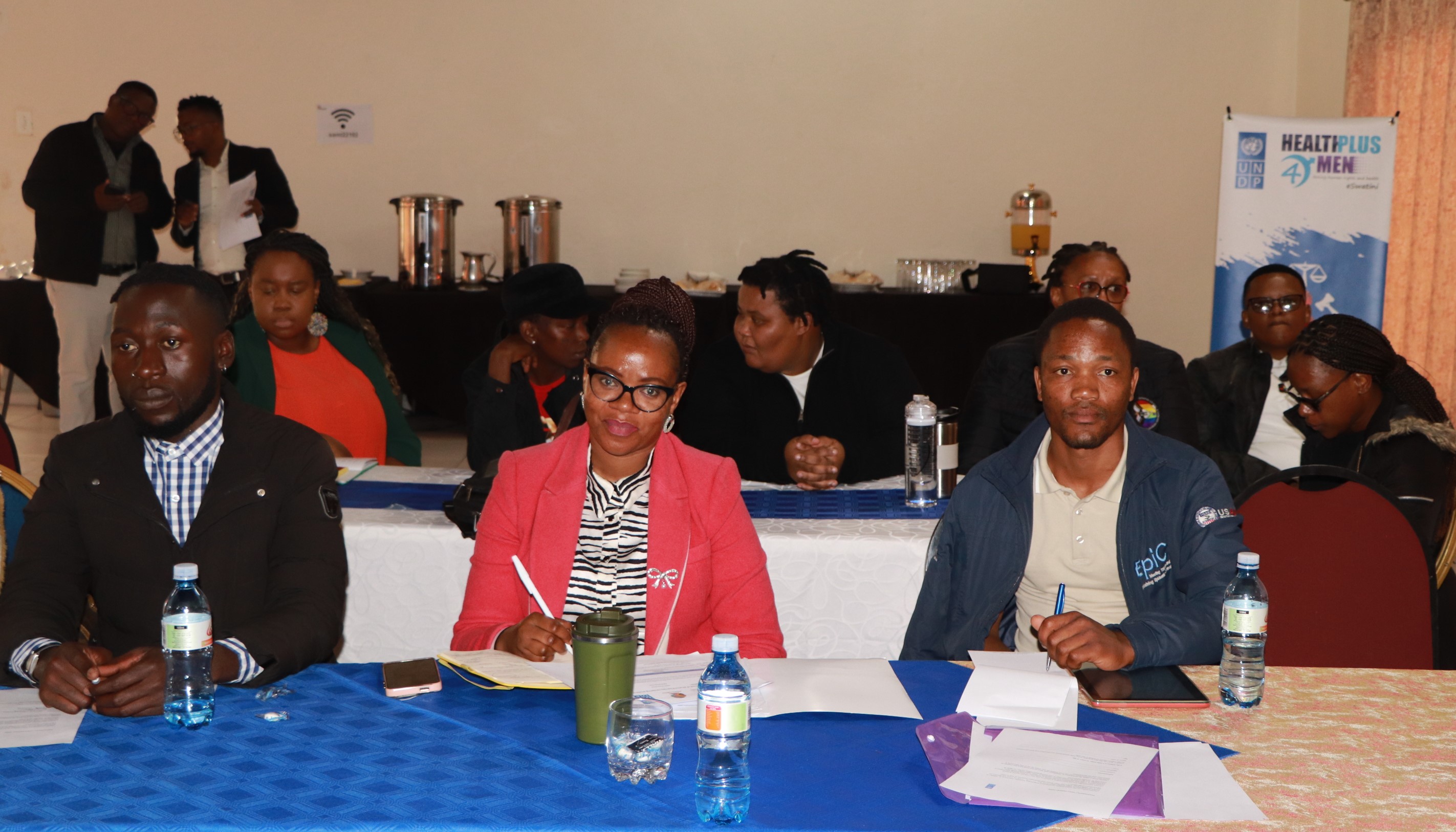Crucial Dialogue Ahead of Eswatini Pride
July 2, 2024

Key and Vulnerable Populations convened for a vital discussion preceding the Pride commemoration.
Sibane Sami Hotel, nestled in Ezulwini, Eswatini, hummed with anticipation on the morning of June 26th. Within one of its conference rooms, there was a palpable sense of purpose and resilience as representatives from diverse organizations of Key and Vulnerable Populations convened for a vital discussion preceding the Pride commemoration. Eswatini will commemorate Pride on Saturday, July 06 at the SNAT Centre, Manzini.
UNAIDS identifies gay men and other men who have sex with men, sex workers, transgender people, people who inject drugs, and prisoners, including other incarcerated individuals, as the five primary Key Population (KP) groups highly vulnerable to HIV. These groups often face significant barriers to accessing essential health and HIV and AIDS. For example, drug use is criminalised in many countries including Eswatini yet users are exposed to HIV because they tend to share syringes.
This event wasn't merely another meeting; it stood as a pivotal platform for dialogue and advocacy, and it was joined by representatives from the ministries of Health and Justice and Constitutional Affairs, Parliament, European Union and USAID. Organized by HealthPlus 4 Men (HP4M), supported by the United Nations Development Programme (UNDP), the agenda was ambitious yet focused: to confront the challenges facing the KPs in Eswatini and advocate for inclusive policies safeguarding their rights.

In a panel discussion, KPs told their story of triumph and tribulations.
Addressing the participants at the event, UNDP Deputy Resident Representative, Nessie Golakai-Gould, said KPs have been front-row advocates for human rights issues and play a crucial role in the global response to HIV/AIDS, stigma, discrimination, and criminalization hinder their access to quality healthcare and exacerbate the spread of the virus.
“We must address these barriers head-on,” she said.
To support Eswatini reach these targets, UNDP, through generous funding from the Embassy of the Kingdom of the Netherlands in Mozambique, is implementing a regional project known as We Belong Africa. Since its inception in 2023, UNDP has been actively implementing this crucial project. Through strategic positioning, we have successfully engaged with four key sectors: gender, health, youth, and justice. These sectors play a pivotal role in addressing the needs of Key Populations (KPs).
“Our goal is to integrate KP issues into their mainstream work, thereby reducing stigma and discrimination,” she said.

Men Plus 4 Health operations manager, Msizi Mkhabela.
Speaking at the same event, Men Plus 4 Health operations manager, Msizi Mkhabela, said KP’s lack of protection not only violates human rights but also creates a hostile environment that discourages individuals from accessing testing, treatment and support services.
“To end AIDS, we must prioritise creating safe spaces where individuals feel protected and empowered to seek help without fear of judgment or reprisal,” said Mkhabela.
He emphasized that ending AIDS requires implementing non-discriminatory laws, launching awareness campaigns to combat stigma, and establishing legal protections for individuals facing discrimination based on their HIV status.

The dialogue was joined by representatives from the ministries of Health and Justice and Constitutional Affairs, Parliament, USAID, EU and civil society organizations.
Among the attendees were activists who had been at the forefront of the movement since Eswatini's first Pride event in 2018. They wore their resilience like armour, their stories etched with both hardship and hope as they shared their testimonies during a panel discussion that focused on the following issues.
Experiences of transgender people in public health facilities, borders, banks and police stations as they present a national identity document that does not match their gender.
KP’s discrimination at church and public facilities such as hospitals and police stations.
Strides made, especially by the Ministry of Health through the National AIDS Programme to create an enabling environment for KPs to access services, although gaps remain.
Throughout the discussions, there were nods of solidarity, applause for resilience, and moments of introspection. Allies and supporters, including international organizations such as USAID, European Union, COSPE, Medicines Sans Frontiers and local NGOs, reaffirmed their commitment to supporting KPs.

 Locations
Locations